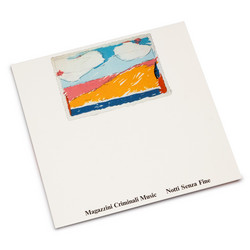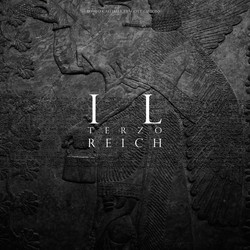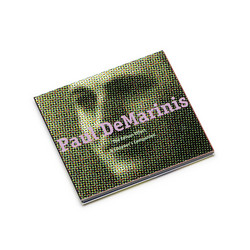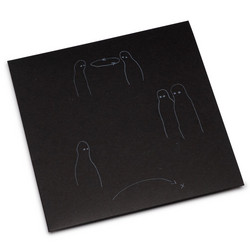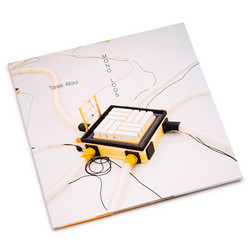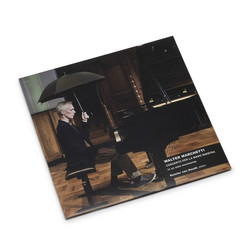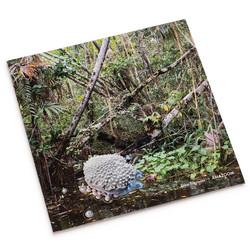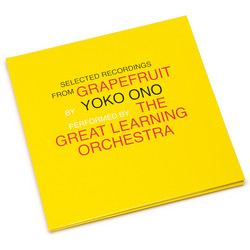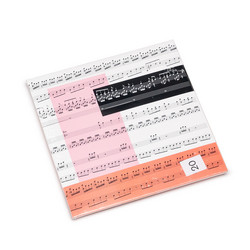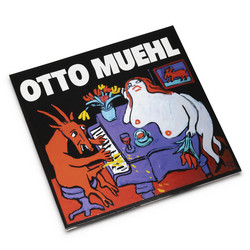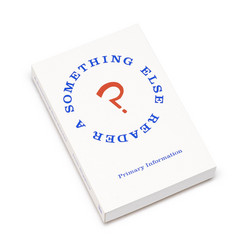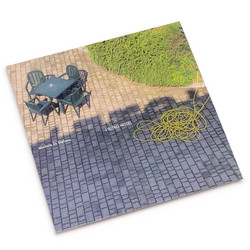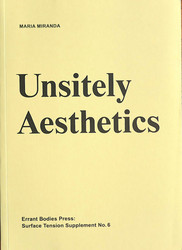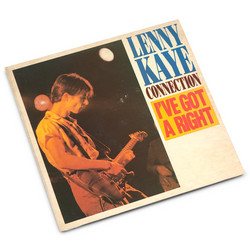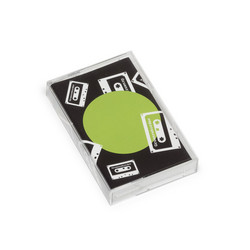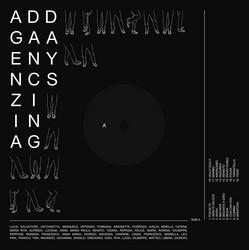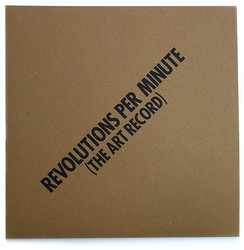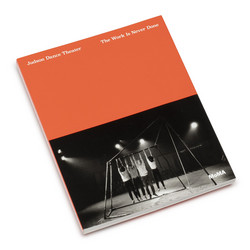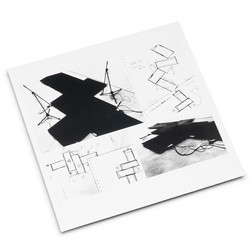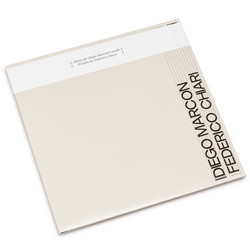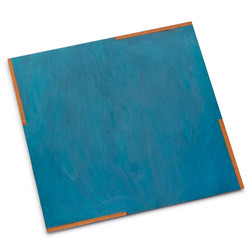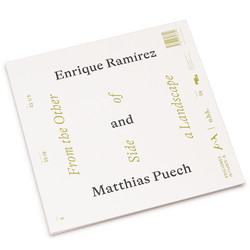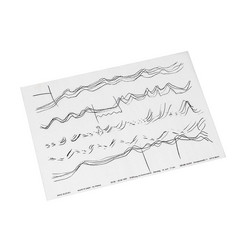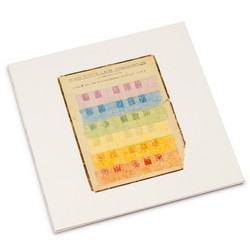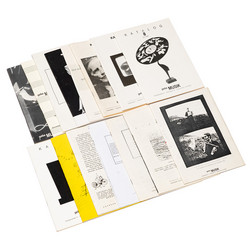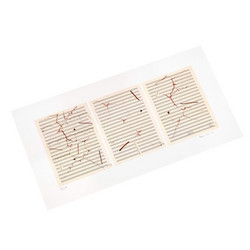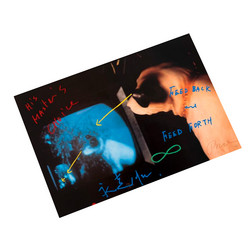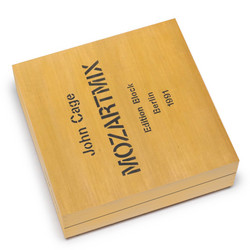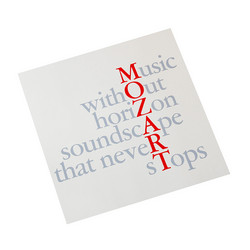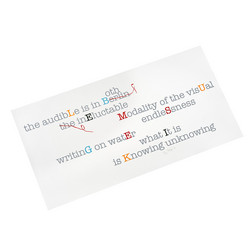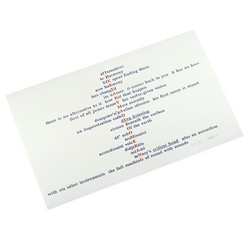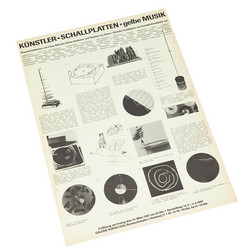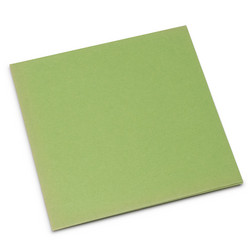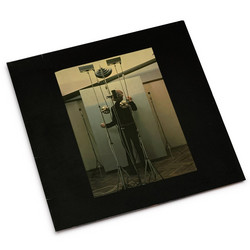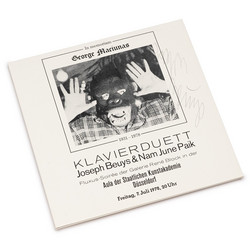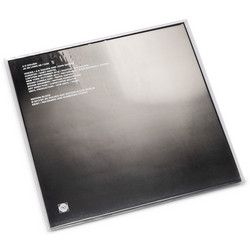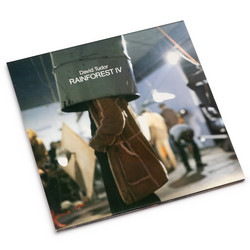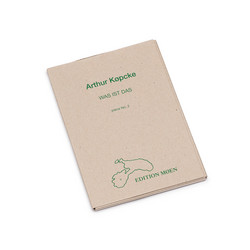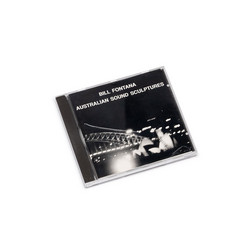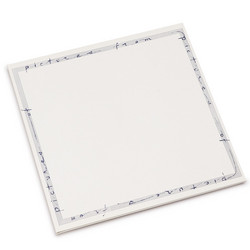Gerhard Rühm
Das Leben Chopins Und Andere Ton-Dichtungen (2LP)
A rare double LP from 1988 presenting a comprehensive collection of "sound poems" by Gerhard Rühm (born 1930), one of Austria's most important experimental artists and a founding member of the revolutionary Wiener Gruppe (Vienna Group). Released by Edition Block in Berlin, this recording documents Rühm's groundbreaking work at the intersection of literature, music, and visual art, featuring compositions created between 1978 and 1984 that exemplify his unique approach to what he terms "auditory poetry" and "visual music." Gerhard Rühm was born in Vienna in 1930 and studied piano and composition at the University of Music and Performing Arts, later receiving private instruction from twelve-tone composer Josef Matthias Hauer. Since the beginning of the 1950s, Rühm has produced an extraordinary body of work encompassing sound poetry, spoken word, visual poetry, photomontages, and experimental musical compositions. As a co-founder of the Wiener Gruppe alongside Friedrich Achleitner, Hans Carl Artmann, Konrad Bayer, and Oswald Wiener, Rühm helped establish Austria's first major post-war avant-garde movement, contributing decisively to the emergence of Vienna Actionism.
The Wiener Gruppe emerged around 1953 as "a small and loose avant-garde constellation of Austrian poets and writers" who showed interest in Baroque literature as well as Expressionism, Dadaism, and Surrealism. Operating in the conservative cultural climate of post-war Austria, the group developed radical approaches to language experimentation that challenged both literary conventions and social norms. Their collaborative works, happenings, and "literary cabarets" (1958-59) created scandal and notoriety, establishing new forms of interdisciplinary artistic practice that prefigured performance art by decades. Rühm's artistic production draws inspiration from August Stramm, Kurt Schwitters, Gertrude Stein, Carl Einstein, and Paul Scheerbart, but develops these influences into entirely original directions. His work operates "at the border between music, language, gestures and the visual," creating what he calls "visual music" and "auditory poetry" - new genres that emerge from systematic exploration of the material properties of language itself.
The centerpiece of this collection, Das Leben Chopins (The Life of Chopin, 1981/82), occupies the entire first record and represents one of Rühm's most ambitious experiments in biographical sound poetry. Rather than conventional narrative, Rühm creates an acoustic portrait that transforms the historical figure into pure sonic material, exploring how biography itself can become musical composition. The work demonstrates his belief that "sound poems, by their very nature, have to do with the human voice, and thus require acoustic reproduction." The remaining compositions showcase the extraordinary range of Rühm's experimental techniques. Reime (Rhymes, 1983) explores the musical properties of German rhyme schemes, while Reagans Humor (1984) transforms political discourse into pianistic material. Die Amseln verstummen in den Städten (The Blackbirds Fall Silent in the Cities, 1984) demonstrates Rühm's interest in ecological themes, while Übersetzungen aus dem Deutschen (Translations from German, 1978) investigates the paradoxes of linguistic translation through musical means.
Perhaps most provocatively, the collection includes Pornophonie (1983), which explores the acoustic dimensions of sexuality, and Meditation über die Letzten Dinge (Meditation on the Last Things, 1983), a philosophical reflection on mortality and transcendence. These works exemplify Rühm's commitment to expanding the acceptable boundaries of poetic discourse, challenging both aesthetic and social conventions. Rühm's approach to sound poetry differs markedly from many of his contemporaries. Rather than bombastic vocal experimentation, his work displays "an intentional withholding, a deliberately focused, disciplined practice of limitation and constraint." Often working with minimal material - single vowel sounds, complementary phonemes, or individual words - Rühm creates compositions that "share more with minimalist sculpture than they do with most poetry." His aesthetic philosophy embraces what one critic describes as movement "from barely something to almost nothing," finding profound meaning in radical reduction.
The recordings were made by Hessischer Rundfunk in Frankfurt and Westdeutscher Rundfunk in Cologne, reflecting the important role that German radio played in supporting experimental art during this period. Radio provided both the technical resources and cultural platform necessary for developing what became known as the Neues Hörspiel (New Radio Play), a genre in which Rühm became a leading practitioner. Rühm's theoretical approach draws on his musical training while fundamentally challenging traditional compositional methods. He explains: "I wrote my first sound poems in 1952, stimulated on the one hand by the expressive, extremely concise short music pieces of Anton Webern, on the other by the prevailing Informel painting movement." This synthesis of serial music techniques with visual art strategies produced an entirely new form of temporal composition.
The visual dimension of Rühm's work cannot be separated from its acoustic properties. "Sound can also be visualized through script, just as how one can interpret smaller and bigger letters as stronger and weaker tones. Their arrangement on a surface, and the suspension of linear notation, gives way to further possible differentiation." This integration of visual and auditory elements places his work within the broader context of concrete poetry while maintaining its specifically musical character. From 1972 to 1996, Rühm served as professor at the Hochschule für bildende Künste in Hamburg, influencing a generation of experimental artists. His work has been recognized with numerous awards including the Austrian Appreciation Prize for Literature (1976) and the Hörspielpreis der Kriegsblinden (1984) for his radio play Wald. Ein deutsches Requiem.
